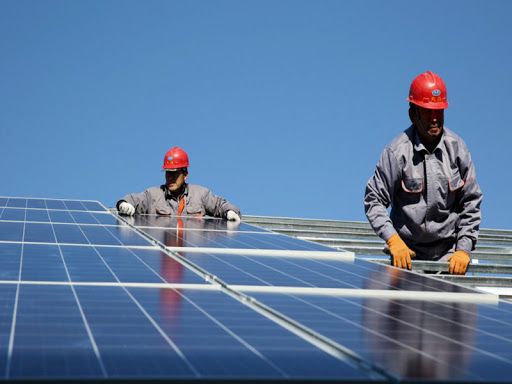The Thai government has promoted renewable energy through three guidelines, highlights a report from the World Trade Organization (WTO).
In order to achieve these objectives, the Thai government has implemented a series of policies, mainly internal measures, such as subsidies and different incentive programs.
These subsidies, however, have incurred significant economic costs. In addition, the prices of energy products are monitored or controlled.
For some products, such as natural gas for vehicles (NGV), diesel and liquefied petroleum gas (LPG), the retail prices were set below the cost of production, so that the price differences they have been offset by government grants.
In recent years, Thailand has focused on promoting the use of renewable energy, not only through incentives in the form of exemptions or reductions from corporate income tax and import tariffs offered by the Board of Investments (BOI ), but also through other incentive programs.
Renewable energies are the energies obtained from virtually inexhaustible natural sources, either because of the immense amount of energy they contain, or because they are capable of regeneration by natural means.
Renewable energies include wind, geothermal, hydroelectric, tidal, solar, wave energy, biomass and biofuels.
These are the three guidelines in renewable energy:
Regulated tariff program for renewable energy
Micro-producers of renewable energy receive payments per kWh («regulated tariffs») higher than those paid to producers of conventional wholesale electricity by state-owned utilities (the Metropolitan Administration of Electricity (MEA), the Provincial Administration of Electricity (PEA) and the Electricity Generation Administration of Thailand (EGAT)).
Rates vary depending on the technology used: solar, biomass, wind and hydroelectric. The program was introduced in 2006 and the regulated rates have been revised several times. Changes in rates must have the approval of the National Energy Policy Council (NEPC).
Community Power Plant Program
Approved by NEPC on September 11, 2019, this program aims to improve the sustainability of communities through the construction of power plants that generate electricity from local renewable raw materials, such as biomass or biogas.
Solar energy project program for homes
Approved by the NEPC on March 19, 2020, its primary objective is to boost the generation of electrical energy using solar panels on roofs for self-consumption or the sale of surplus energy to the grid.
The Alternative Energy Development Plan (AEDP) 2018 set the program objective at 50 MW, with a regulated tariff for 10 years.
In turn, the ENCON Fund was created in 1992 by virtue of the ENCON Law, E.B 2535, in order to support projects aimed at improving energy efficiency, promoting renewable energies and increasing energy conservation.
The Fund is administered by the ENCON Fund Committee.
Companies directly related to energy conservation or the solution of environmental problems caused by energy conservation are entitled to receive subsidies from the Fund, and cannot have political objectives or profit-making purposes.
Electricity generation and installed generation capacity, as of December 31, 2019
The ENCON Fund’s income comes from fuel consumers (THB 0.10 / liter). On March 8, 2018, NEPC approved the provision of THB 10 billion per year for ENCON Fund expenditures during the 2017-2021 budget years.
Thailand has a multitude of tax and non-tax incentive programs for investment, with a rather complex structure, including incentives granted by the Investment Board and those offered to special economic zones, SMEs and certain sectors such as agriculture, fishing and renewable energy.
![]()

